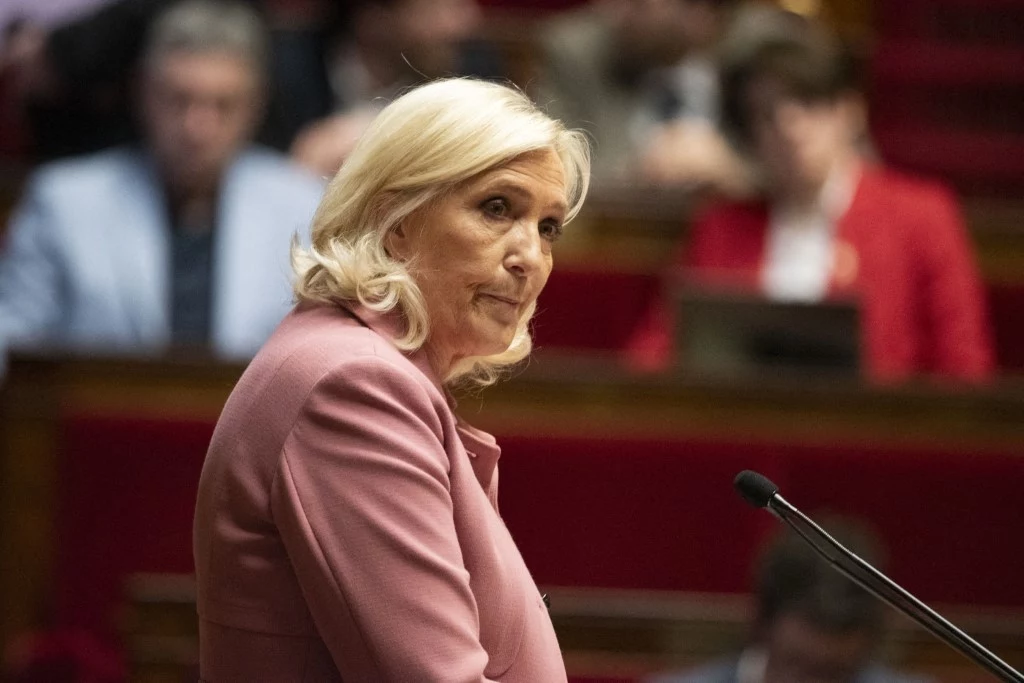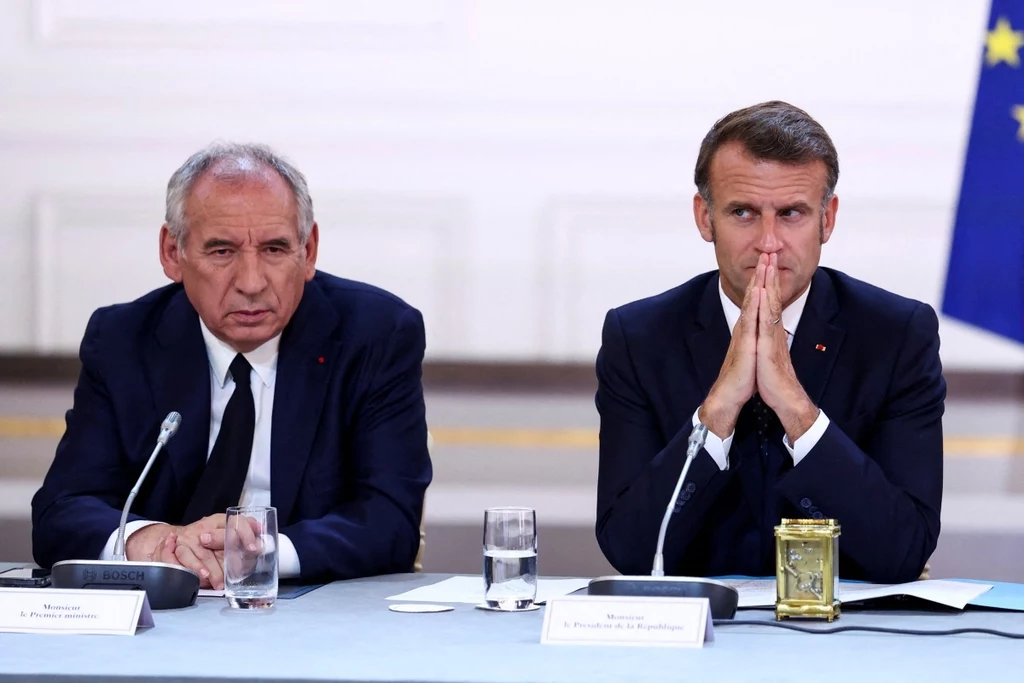It's a matter of choice or a matter of transport - that was the assumption made by the head of the French government at the end of August. Francois Bayrou, like his predecessor Michel Barnier, faced an impossible political mission. Because what else can you call the National Assembly's vote on a budget introducing draconian austerity measures (almost €44 billion annually) when you don't have the majority needed?
And France must save. Here and now.
The public debt of 3.3 trillion euros is getting out of control, its servicing (60 billion euros annually) will soon be the most expensive item in the budget (and the prospects are only getting worse), The European Commission initiated the so-called excessive deficit procedure against France over a year ago, and the rating agencies are just waiting to downgrade Paris's rating and further deepen its already serious financial problems.
Bayrou therefore had a choice: become the face of France's budget disaster and ruin his impressive CV, or risk the premiership and go for broke. He chose the latter, even though he knew from parliamentary arithmetic that his chances of success were illusory. He linked the vote on the draft budget to a vote of confidence in his government. He did so, and he lost.
- Yes, I know it's risky, but doing nothing is even riskier, Bayrou said in an August interview. He also announced that he would"fight like a dog." At a meeting with trade unions, he clearly outlined the stakes of the confidence vote:
France. Opposition stands united against the government
If we take the French Prime Minister's perspective, parliamentarians sided with chaos. The opposition parties, crucial to the vote's outcome—both on the right and left—had long since given up on Francois Bayrou and his government. Last-ditch talks between the Prime Minister and the leaders of the leading political parties, which took place in the first week of September, did not change this.

- The only way the prime minister could survive a little longer in office would be if he broke with "Macronism" - Marine Le Pen stated after the meeting with Bayrou.
The leader of the far-right National Rally accused the prime minister of pursuing"toxic policies" and called for an "ultra-rapid" dissolution of parliament and early elections. After the elections, she said, the new majority could prepare a new draft budget for 2026.
This is interesting because the National Rally has a radically different vision for French finances than the one proposed by Bayrou's cabinet. Despite the country's precarious situation and serious concerns from global markets, Le Pen would like to... take out more loans and, among other things, increase spending (especially on the police and military).
Le Pen also hopes that early elections this time would result in a victory for the National Rally, which is clearly leading in all polls, with an average support of around 35 percent. Emmanuel Macron's party is only third in the field, and around 17-18 percent of French people want to vote for it, which is less than the left-wing New Popular Front (around 24-25 percent of the vote). In the calculations of Le Pen and her supporters, a victory in the parliamentary elections would open the door to capturing the Élysée Palace in 2027.
The only way the prime minister could survive in office a little longer would be if he broke with"Macronism"
Marine Le Pen, leader of the National Rally
There was no sympathy for the government on the left wing of the political spectrum either. Jean-Luc Melenchon, leader of the radical France Insubordinate, has a clear plan: first, to remove Bayrou's cabinet from power, and then renew the impeachment proceedings against President Macron. This would happen in September.
Government Collapse in France. All Macron's Options
However, it is Francois Bayrou, who was not defeated in the vote, who may face the greatest problems after the government's collapse. President Emmanuel Macron is clearly at the forefront here. For him, the government's collapse means (renewed) chaos and uncertainty in the country, as well as the need to make difficult decisions. Especially since all the options before him involve minimizing losses, not fighting for victory.
Option number one is to find a new prime minister, who, like Bayrou and his predecessor Michel Barnier, will head a minority government.
The crux of the matter will therefore remain unchanged – the government will be unable to adopt any significant legal changes without the opposition's support. And given the parliamentary gridlock that paralyzes French politics, with one veteran after another breaking their teeth, there is no shortage of candidates willing to replace Bayrou.
Option number two is to keep Bayrou in office as technical prime minister and seek a more or less effective solution to the political stalemate. However, this is a short-term strategy, an attempt to buy time and devise a more certain strategy for the future. There is no guarantee of success, and the risk of exacerbating the already significant chaos.
Option number three is to negotiate with the radical left or radical right in the hope of reaching a compromise and forming a majority government. However, the comments and goals of representatives of both these blocs, as well as President Macron's history of statements and actions in recent years, make such a scenario extremely unlikely.

Prime Minister and President of France: Francois Bayrou and Emmanuel Macron TOM NICHOLSON FP
Option number four is (re)calling early parliamentary elections. A gamble. The problem is that the first such gambit failed to produce the expected results and left the French in a political deadlock. Current polls, however, show that there is no prospect of a stable government majority this time either. And the risk of handing power to the far right may be the factor that deters Macron from taking the risk.
Option number five is what the opposition, especially the New Popular Front, is demanding: Macron resign. The chances that Macron, who still has over a year and a half left in his term, will bow to the demands of his political opponents are close to zero. It would be a white flag, an admission of guilt for the political chaos in the country, and an undoing of his two terms in the Élysée Palace. And on top of that: an almost certain handover of the presidency to the far right in 2027.
In theory, there are many options (and probably not all of them), but none of them offer the promise of political success. Perhaps that's why the French have been waiting, and are waiting, for whether, when, and how President Macron will address the matter more than for the outcome of the vote on the future of the government.
Kamiński: The French didn't want to die for Gdańsk. Macron learned his lessonRMF FMRMF

